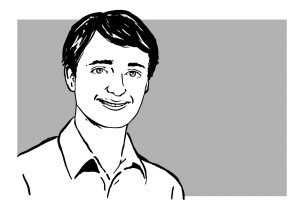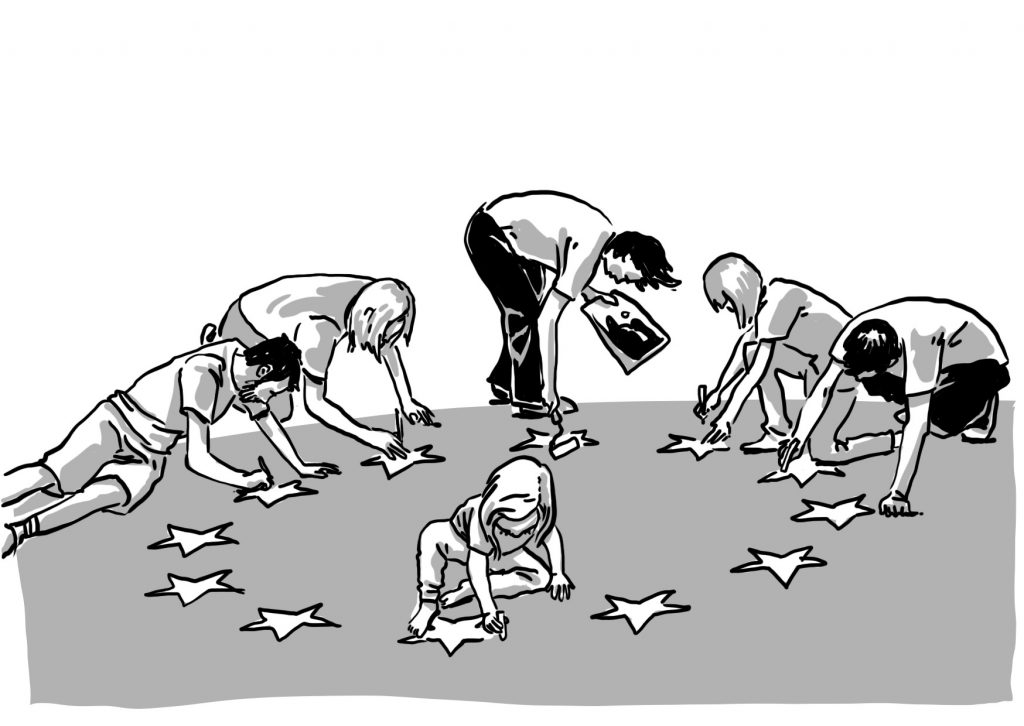What does an ‘Ever Closer Union’ mean? MIA Student Sasha Ockenden takes a look at the idea of European integration, the refugee crisis in the Mediterranean, and the narratives that allow German populists to construct an ‘immigrant invasion’ in places where immigrants are conspicuous only by their absence.
‘Ever Closer Union’: these three words have outraged nationalists across Europe since they were first put to paper in the 1957 Treaty of Rome. Sixty years on, it feels like perhaps an inopportune moment to argue for deeper integration, as Jean-Claude Juncker did in his ‘State of the Union’ speech in September with the suggestion that “the wind is back in Europe’s sails”. The past two years have seen the cogs of Brexit set in motion, anti-EU parties prospering in Holland, France and Germany, and a nationalist sweeping to power across the Atlantic. With Europe in a precarious situation, others (such as Poland’s ruling Law and Justice party) have argued it would be more prudent for the EU to return some control to nation states – lest it lose control entirely.
The integration implied by ‘Ever Closer Union’ can mean many things: economic integration by adopting the Euro, or geographic integration by expanding the Schengen zone. However, at the heart of any definition lies the political principle of solidarity – the belief that Europe should share not only its prosperity, but also its problems. This principle has become neglected in the last few years, most recently by the refusal of European countries to share the burden of refugees and migrants coming into Europe.
‘Integration’ thus refers not only to how member states integrate into the European Union – but also to the integration of those who arrive at its borders. The two are interconnected: the way in which a nation closes itself off from refugees is often a microcosm of how it rejects the world beyond its borders. Evidence can be found in the unholy marriage of Trump’s ‘America First’ isolationism with his ban on Syrian refugees, or the spike in violence against migrants in Britain in the days following Brexit.
Both forms of integration come with challenges: they are expensive, time-consuming and carry a political cost. Paradoxically, campaigning to take in more refugees – just like closer EU integration – could potentially tip the fragile political balance of Western European countries towards anti-EU xenophobes. However, the recent German election threw up an interesting counter-paradox. The anti-immigrant AfD was most successful in the areas with fewest immigrants, with its best result in a constituency in Saxony where non-Germans make up just 1.7% of the population.
Perhaps this is no paradox at all, but rather a catalyst for Europe to press ahead with deeper integration rather than pandering to nationalists. The alternative is a vicious circle: the more a nation isolates itself from other countries, the more its nationalist fictions are allowed to fester. These narratives allow Trump voters with a median income of $72,000 to plead economic disenfranchisement. They allow German populists to construct an ‘immigrant invasion’ in places where immigrants are conspicuous only by their absence.
Berlin is not one of those places: from the Kiron University set up in 2015 to educate refugees to the alternative city tours ‘through the eyes of a refugee’, their presence is far more visible than elsewhere in Europe – partly for the simple reason that Germany took its fair share. Yet two years on from the much-publicised death of Alan Kurdi, countries such as Spain have resettled less than 15% of their allocation, making a mockery of the solidarity principle by leaving Italy and Greece to pick up the pieces. For many across Europe, solidarity amongst European states may be an attractive idea in principle, but hardly a matter of life or death. Living and studying in Berlin confronts you with a different side to European integration: people whose choice really was Europe or death. For 5,096 of those who attempted the Mediterranean crossing last year, the end result was not ‘Europe’.
European integration is not, as the Brexit ‘Leave’ campaign would have it, a question of bureaucrats in Brussels measuring the bendiness of bananas (one of the most famous nationalist ‘Euromyths’). Rather, it is about men, women and children fleeing the sort of wars Europe has not seen since before the Treaty of Rome itself, putting their faith not just in unseaworthy boats and unscrupulous smugglers but in a vision of Europe which many Europeans have long forgotten.
Michael Gove, one of the leading ‘Brexiteers’, referred the EU as a “sinking ship”. Yet it is a ship which many drown trying to enter, rather than leave. Those sitting in sinking rubber dinghies as they fill up with petrol, saltwater and excrement encapsulate the very essence of Europe, risking death for a better life: clean water, freedom of expression, shelter from bombs. They are the embodiment of what Europe stands for – not merely prosperity, but a desire to live in peace and security, assisted by an institution which for all its imperfections remains one of the few broadly functional and democratic international organisations worldwide.
The next frontier for the European Union should be to break down some of the frontiers already in place, to look outwards rather than inwards and take a peek over the parapets of ‘Fortress Europe’. By integrating more of those who truly value Europe, perhaps the EU’s disparate member states will overcome their nationalist narratives and learn to love the macrocosmic integration of the ‘Ever Closer Union’.
 Sasha Ockenden is a 2nd year Master of International Affairs student at the Hertie School of Governance. He has a Bachelor of Arts in French and German from the University of Oxford. He has worked as a freelance classical singer and tutor, and is a trustee of the UK branch of the charity Doctors for Madagascar.
Sasha Ockenden is a 2nd year Master of International Affairs student at the Hertie School of Governance. He has a Bachelor of Arts in French and German from the University of Oxford. He has worked as a freelance classical singer and tutor, and is a trustee of the UK branch of the charity Doctors for Madagascar.
